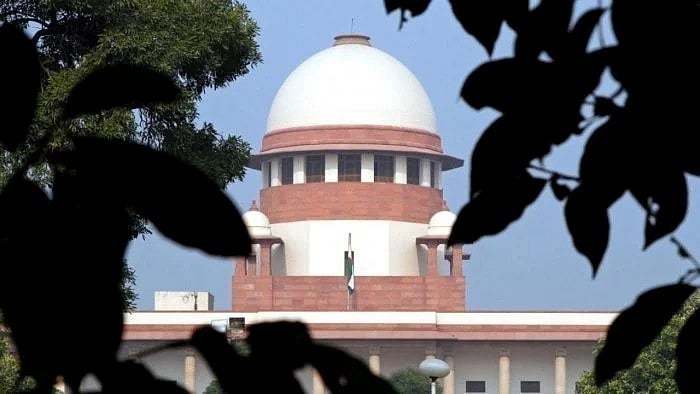
The Supreme Court of India.
Credit: PTI File Photo
New Delhi: The Supreme Court has said its power to punish for contempt of itself is not limited and confined to the procedure under the Contempt of Courts Act, 1971.
A bench of Justices Sanjay Karol and Sandeep Mehta said under Article 129 of the Constitution, the Supreme Court being a court of record, has got the power to punish for contempt.
The power of the Supreme Court to punish for contempt is not limited and confined to the procedure under the Contempt of Courts Act, 1971, the court said.
"It is within the constitutional power of this court to consider the contumacious acts of a contemnor and to punish him/her/them for same. This very constitutional power cannot be taken away in any manner abridged by statute," the bench held.
The court held a man guilty of contempt of its 2022 order to deposit Rs one lakh after dismissal of his writ petition for use derogatory and scandalous language in response to the contempt notice, and display of obstinate attribute during the proceedings, including abscondence.
"We are of the opinion that the alleged contemnor has crossed all limits of acceptable behaviour and has intentionally and deliberately flouted this court’s order dated 5th December, 2022," the bench said.
Not only this, upon issuance of the contempt notices, the court noted, the alleged contemnor blatantly refused to appear in the court and also used derogatory and disrespectful language in his reply against the order of August 7, 2023, passed by this court whereby notice of contempt was issued to him.
"Even while appearing in court, he has neither shown any remorse nor has he made any attempt to repent or apologise for his blatant contumacious conduct. Rather, he has continuously tried to justify the same," the bench said.
The bench scheduled the matter for July 22 hearing the alleged contemnor, Upendra Nath Dalai on point of sentence.
The bench held, a plea by the alleged contemnor that the contempt proceedings cannot be heard till the curative petition is taken up, as absolutely misconceived
"The alleged contemnor cannot claim any right to have his curative petition taken up in priority over the contempt proceedings. The proceedings of contempt are unquestionably independent of the curative petition, if any," the bench said.
